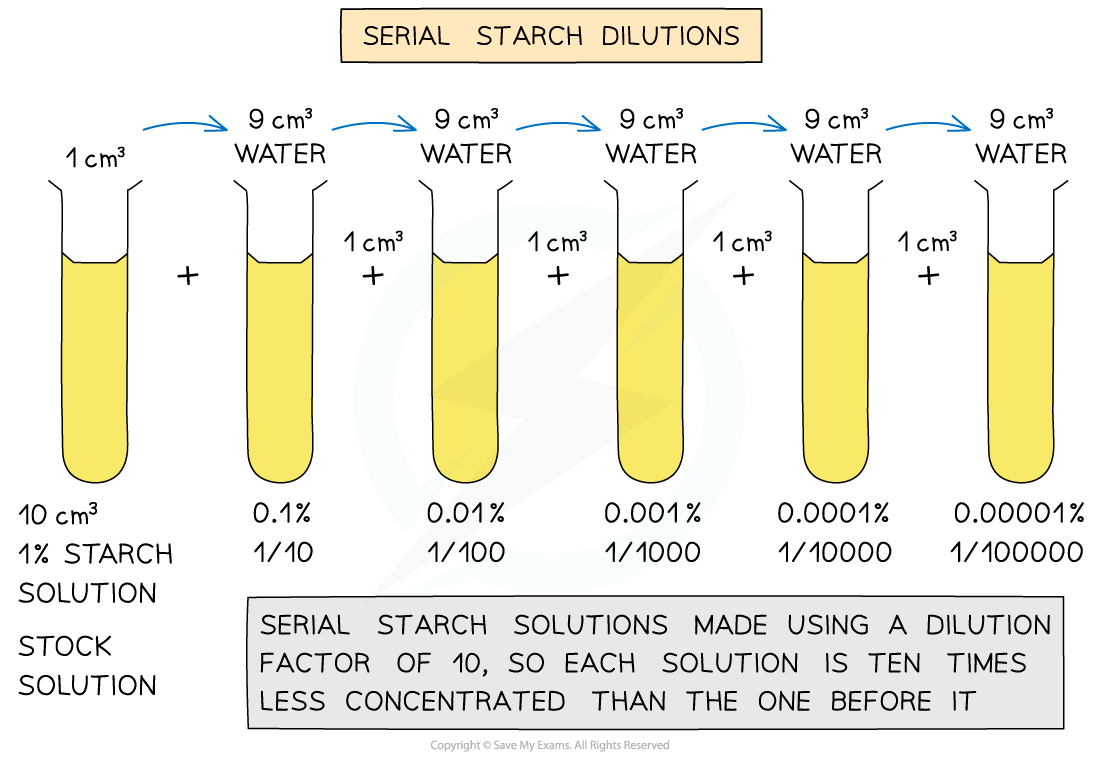Colorimetry (Cambridge (CIE) AS Biology): Revision Note
Exam code: 9700
Colorimetry to measure enzyme activity
A colorimeter is able to measure light absorbance (how much light is absorbed) or light transmission (how much light passes through) a substance
Colorimetry can be used in any enzyme-catalysed reaction that involves colour change
As the colour breaks down the transmission increases or light absorption decreases and this can be used to measure the rate of the reaction
For example, a colorimeter can be used to follow the progress of a starch-amylase catalysed reaction as the amylase breaks the starch down into maltose
This can be carried out as follows:
Colorimeter calibration: this is an important step in a colorimetric investigation and in this case a weak iodine solution can be used to calibrate the colorimeter as the end point (or 100% transmission)
Preparation of a starch solution of known concentration (stock solution), from which a range of concentrations are made using serial dilutions (method outlined in diagram below)
Following calibration and switching on the red filter (to maximise the percentage transmission or absorbance), the colorimeter is used to measure the percentage absorbance or percentage transmission values
A calibration graph is then plotted of starch concentration (X-axis) vs percentage absorbance or percentage transmission (Y-axis)

Examiner Tips and Tricks
Always calibrate the colorimeter with a blank before taking any measurements.
If you skip this, the readings won’t be accurate because the colorimeter won’t be zeroed. Examiners may award a specific mark for stating that a blank (such as distilled water or weak iodine solution) must be used to set the absorbance to 0 before testing your samples.

Unlock more, it's free!
Did this page help you?